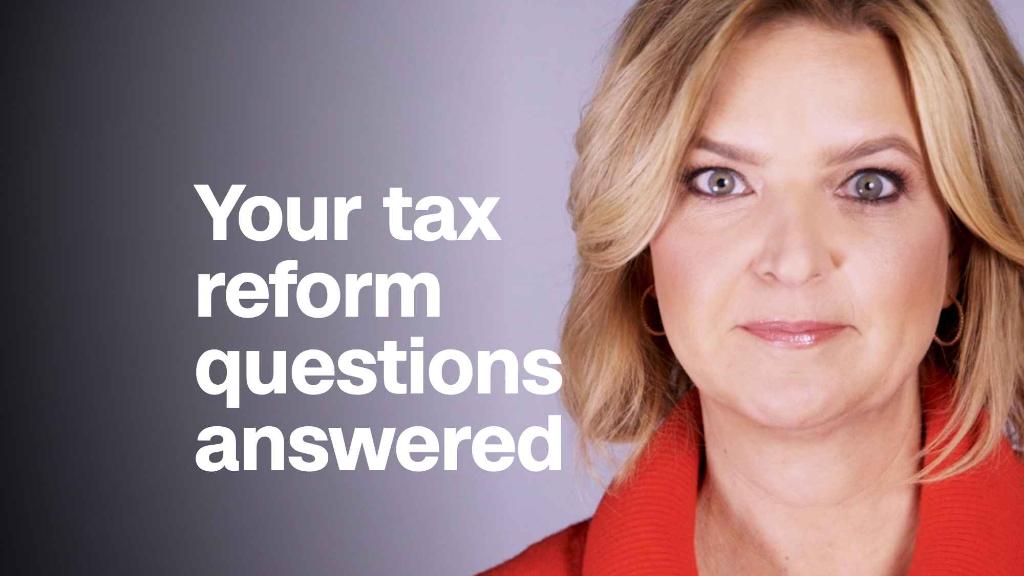
President Trump has cheered corporations "showering their workers with bonuses" thanks to the tax overhaul he just signed into law.
Trump tweeted on Tuesday that "companies are giving big bonuses to their workers because of the Tax Cut Bill." He added, "Really great!"
The president is right: Companies poised to cash in on the tax cuts, such as AT&T, Bank of America (BAC), Comcast (CMCSA) and Wells Fargo, have announced one-time bonuses and pay raises. It's terrific news for employees, especially those struggling with years of disappointing wage increases.
American Airlines (AAL), Southwest Airlines (LUV), U.S. Bancorp (USB), Zions Bancorp (ZBPRA) and Regions Financial (RF) on Tuesday became the latest big companies to unveil $1,000 special bonuses or pay raises.
But despite the political rhetoric, only a small fraction of corporate America has decided to share the tax bonanza directly with workers, at least so far.
According to the White House's own compilation and more recent announcements, only 18 companies in the S&P 500 have responded to the tax overhaul by raising wages, handing out bonuses or improving employee benefits. If smaller companies such as GoDaddy (GDDY) and Sinclair Broadcasting (SBGI) are included, the list expands to about four dozen.
"It's good marketing, but you don't have a trend yet. It's premature at this point," said William Klepper, a management professor at Columbia Business School.
The employee rewards that have been announced are often a small percentage of what companies are saving from the tax overhaul.
For instance, Wells Fargo (WFC) decided to boost its minimum wage to $15 per hour and increase its charitable giving by 40%. Yet the scandal-ridden bank is one of the biggest beneficiaries of the new corporate tax rate -- 21%, down from the previous 35%. Wells Fargo's effective tax rate was 31% in 2016, according to S&P Dow Jones Indices.
The wage hike and additional charitable giving will cost Wells Fargo about $215 million in 2018, according to investment bank KBW. That represents just 5% of Wells Fargo's total estimated earnings benefit from the tax overhaul, KBW estimates.
"It's a token compared with what companies are actually saving. Where is the rest of the money going?" said Jeffrey Sonnenfeld, senior associate dean at the Yale School of Management.
Related: The great debate: Will corporate tax cuts trickle up or down?
Sonnenfeld argued that the wage hike and bonus announcements "were heavily from employers under the gun from government scrutiny."
For instance, AT&T's (T) proposed takeover of CNN owner Time Warner (TWX) has been blocked by the Justice Department. Trump recently vowed to punish Wells Fargo for "bad acts against their customers." And Sinclair, the largest owner of local television stations in the U.S., has a $3.9 billion acquisition that is being reviewed by the FCC.
To be sure, it's early, and some companies are still trying to understand the impact of the most sweeping tax overhaul in three decades. More bonus announcements may be coming.
Other companies may use their tax savings for different purposes. Wall Street anticipates a big chunk of the tax windfall will get returned to shareholders in the form of bigger share buybacks and fatter dividends. In 2004, when Congress provided tax breaks for companies to bring foreign profits back home, businesses used much of their money on share buybacks.
Investors love when companies use excess cash to repurchase their own stock. These moves make stocks more attractive by limiting the supply of shares, thereby improving a key measure of profitability known as earnings per share.
Corporations are also likely to use the money to pay down debt or make acquisitions.
Related: Corporate America's big, fat profitable year
How companies use their tax savings will be decided by longer-term decisions than one-time bonuses. It will help determine whether the massive corporate tax cut will trickle down to workers and consumers, as the White House has promised, or tilt more toward shareholders.
Wage hikes are needed because nearly half of Americans (49%) feel their wages haven't kept up with the cost of living, according to Pew Research Center. Average hourly earnings increased by 2.5% over the past 12 months, trailing the Federal Reserve's target of 3.5%.
If wage growth remains lackluster, it could worsen America's record wealth inequality gap. The richest 1% of families controlled nearly twice as much wealth in 2016 as the bottom 90%, according to the Federal Reserve.
HSBC said that because the "bulk of the direct gains" from the tax overhaul will go to the rich and corporations, "it is hard to see it supporting more inclusive growth."
If the government fails to reverse the "worsening income inequality," HSBC predicted "anger over this issue will persist and support for populist parties will continue to rise."
--CNNMoney's Lydia DePillis, Jackie Wattles and Hadas Gold contributed to this report.


